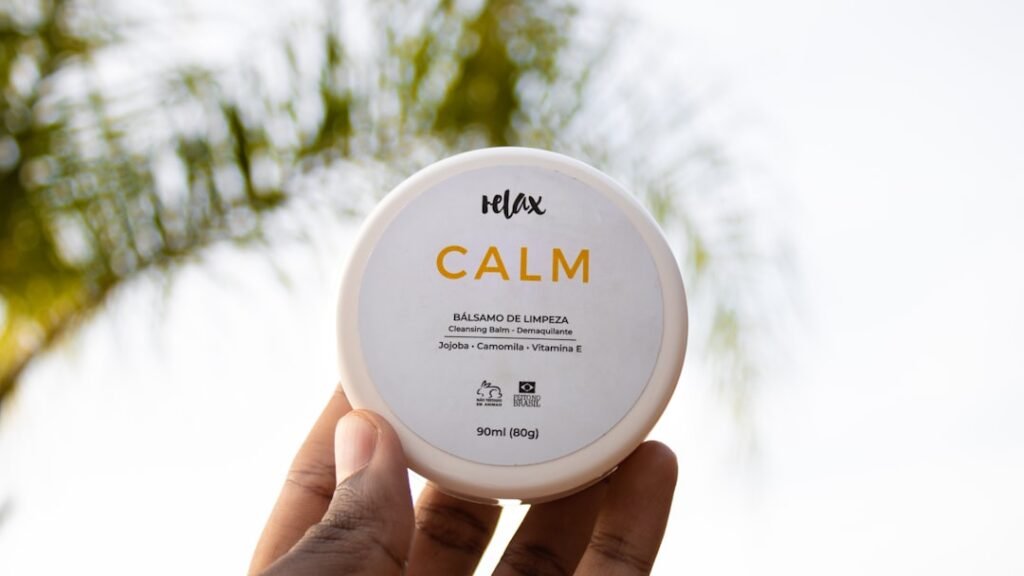Cold sores, also known as fever blisters, are a common viral infection caused primarily by the herpes simplex virus type 1 (HSV-1). These small, painful blisters typically appear on or around the lips, but they can also manifest in other areas of the face. For many of us, the appearance of a cold sore can be both physically uncomfortable and emotionally distressing.
The stigma surrounding cold sores often leads to feelings of embarrassment, as they are highly visible and can be mistaken for other skin conditions. Understanding the nature of cold sores is crucial for managing outbreaks and minimizing their impact on our daily lives. The initial infection with HSV-1 often occurs during childhood or adolescence, and while many people may not experience symptoms at first, the virus remains dormant in the body.
Stress, illness, or even exposure to sunlight can trigger a reactivation of the virus, leading to the familiar blisters.
For those of us who suffer from recurrent outbreaks, it is essential to explore various treatment options and preventive measures to reduce the frequency and severity of these episodes.
In this article, we will delve into a range of remedies and lifestyle changes that can help us manage cold sores effectively.
Key Takeaways
- Cold sores are caused by the herpes simplex virus and are highly contagious
- Over-the-counter remedies like creams and ointments can help alleviate symptoms and promote healing
- Prescription medications like antiviral drugs can help reduce the frequency and severity of cold sore outbreaks
- Home remedies such as applying ice or tea bags can provide temporary relief from pain and discomfort
- Natural remedies like aloe vera and lemon balm may have antiviral properties that can help with cold sore treatment
Over-the-Counter Remedies
When we first notice the tingling sensation that often precedes a cold sore outbreak, reaching for over-the-counter remedies can be a practical first step. These products are readily available at pharmacies and can provide us with immediate relief from discomfort.
Many over-the-counter treatments contain ingredients like benzyl alcohol or docosanol, which can help to alleviate pain and speed up healing.
Applying these topical treatments at the first sign of an outbreak may reduce the duration and severity of the cold sore. In addition to topical creams, we can also consider using lip balms or ointments that contain sunblock. Since sun exposure can trigger outbreaks for some individuals, protecting our lips from harmful UV rays is a proactive measure we can take.
Furthermore, some over-the-counter pain relievers, such as ibuprofen or acetaminophen, can help manage any associated discomfort. By utilizing these readily available remedies, we can take control of our symptoms and minimize the impact of cold sores on our daily activities.
Prescription Medications

For those of us who experience frequent or severe cold sore outbreaks, prescription medications may be necessary to manage the condition effectively. Antiviral medications such as acyclovir, valacyclovir, and famciclovir are commonly prescribed to help reduce the duration and severity of outbreaks. These medications work by inhibiting the replication of the herpes virus, allowing our immune system to combat the infection more effectively.
When taken at the first sign of an outbreak, these drugs can significantly shorten healing time and lessen symptoms. In some cases, healthcare providers may recommend a daily suppressive therapy regimen for individuals with recurrent outbreaks. This approach involves taking antiviral medication daily to reduce the frequency of outbreaks and lower the risk of transmission to others.
While prescription medications can be highly effective, it is essential for us to discuss potential side effects and interactions with our healthcare provider to ensure that we choose the best course of action for our specific situation.
Home Remedies
In addition to over-the-counter and prescription options, many of us may find relief through various home remedies that have been passed down through generations. One popular method involves applying a cold compress to the affected area. The coolness can help soothe inflammation and reduce pain associated with cold sores.
We can easily create a cold compress by wrapping ice in a cloth or using a clean washcloth soaked in cold water. Another home remedy that some individuals swear by is the use of aloe vera gel. Known for its soothing properties, aloe vera can help to hydrate the skin and promote healing.
Applying fresh aloe vera directly to the cold sore may provide relief from discomfort while also aiding in recovery. Additionally, we might consider using tea bags—particularly green tea bags—due to their antioxidant properties. Placing a cooled tea bag on the blister may help reduce inflammation and speed up healing.
Natural Remedies
For those of us who prefer a more holistic approach, natural remedies can offer alternative solutions for managing cold sores. One such remedy is lemon balm (Melissa officinalis), which has been shown in some studies to possess antiviral properties against HSV-1. Applying lemon balm extract or cream directly to the cold sore may help reduce symptoms and promote healing.
Another natural option is the use of essential oils, such as tea tree oil or lavender oil. These oils have antimicrobial properties and may help soothe irritation when diluted with a carrier oil and applied topically. However, it is crucial for us to perform a patch test before using essential oils to ensure that we do not have an adverse reaction.
By exploring these natural remedies, we can find additional ways to support our body’s healing process while managing cold sore outbreaks.
Lifestyle Changes

Making certain lifestyle changes can significantly impact our susceptibility to cold sore outbreaks. Stress management is one area where we can focus our efforts; high-stress levels are known triggers for many individuals. Incorporating relaxation techniques such as yoga, meditation, or deep-breathing exercises into our daily routine can help us maintain emotional balance and reduce the likelihood of an outbreak.
Additionally, ensuring that we get adequate sleep is vital for maintaining a healthy immune system. Sleep deprivation can weaken our body’s defenses against infections, making us more susceptible to cold sores. By prioritizing restful sleep and establishing a consistent sleep schedule, we can bolster our overall health and resilience against viral infections.
Dietary Supplements
In our quest for effective cold sore management, dietary supplements may also play a role in supporting our immune system and reducing outbreaks. One popular supplement is lysine, an amino acid that some studies suggest may help inhibit the replication of the herpes virus. Taking lysine supplements or increasing our intake of lysine-rich foods—such as dairy products, fish, and legumes—may provide additional support in preventing outbreaks.
Zinc is another essential mineral that plays a crucial role in immune function. Some research indicates that zinc supplementation may help reduce the duration and severity of cold sores when taken at the onset of symptoms. As we consider incorporating dietary supplements into our routine, it is essential for us to consult with a healthcare professional to determine appropriate dosages and ensure they align with our individual health needs.
Topical Treatments
Topical treatments specifically designed for cold sores are widely available and can provide targeted relief from symptoms. Many of these products contain antiviral agents that work directly on the affected area to speed up healing and reduce discomfort. We should look for creams or ointments that contain ingredients like acyclovir or docosanol for optimal effectiveness.
In addition to antiviral creams, we might also explore products containing soothing agents like lidocaine or benzocaine, which can numb the area and alleviate pain temporarily. Applying these topical treatments at the first sign of an outbreak can make a significant difference in how quickly we recover from cold sores.
Antiviral Medications
Antiviral medications are often considered the gold standard in managing cold sores due to their effectiveness in reducing symptoms and speeding up recovery time. Acyclovir is one of the most commonly prescribed antiviral drugs for treating herpes simplex virus infections. It works by inhibiting viral replication, allowing our immune system to take control of the infection more efficiently.
Valacyclovir is another antiviral medication that has gained popularity due to its convenience; it requires fewer doses than acyclovir while providing similar benefits. For those of us who experience frequent outbreaks, discussing long-term antiviral therapy with our healthcare provider may be beneficial in reducing both the frequency and severity of episodes.
Alternative Therapies
As we explore various options for managing cold sores, alternative therapies may also offer valuable support. Acupuncture has gained attention as a complementary treatment for various health conditions, including viral infections like herpes simplex virus. Some individuals report reduced frequency and severity of outbreaks after undergoing acupuncture sessions.
Another alternative therapy worth considering is homeopathy, which focuses on treating individuals holistically rather than just addressing symptoms. Homeopathic remedies tailored specifically for cold sores may provide relief for some people; however, it is essential for us to consult with a qualified homeopath before pursuing this route.
Conclusion and Final Thoughts
In conclusion, managing cold sores requires a multifaceted approach that encompasses various treatment options and lifestyle changes. From over-the-counter remedies to prescription medications and natural alternatives, we have numerous tools at our disposal to combat this common viral infection effectively. By understanding our triggers and implementing preventive measures—such as stress management techniques and dietary adjustments—we can significantly reduce the frequency and severity of outbreaks.
Ultimately, it is essential for us to remain proactive in our approach to cold sore management while seeking guidance from healthcare professionals when necessary. With a combination of effective treatments and lifestyle modifications, we can navigate this condition with greater confidence and ease, allowing us to focus on what truly matters in our lives without being hindered by cold sores.
If you are interested in learning more about skin health and treatments, you may want to check out this article on skin cancer detection. Understanding the signs and symptoms of skin cancer is crucial for early detection and treatment. It is important to stay informed about various skin conditions and their treatments, such as psoriasis and psoriatic arthritis, which are discussed in another informative article on medical dermatology. By staying informed and proactive about your skin health, you can take steps to prevent and treat various skin conditions effectively.
FAQs
What are cold sores?
Cold sores, also known as fever blisters, are small, fluid-filled blisters that typically appear on or around the lips. They are caused by the herpes simplex virus and are highly contagious.
What are the symptoms of cold sores?
The symptoms of cold sores include tingling, itching, or burning sensation around the lips before the blisters appear. The blisters then break open, crust over, and eventually heal within a few weeks.
What are the best cold sore remedies?
The best cold sore remedies include over-the-counter antiviral creams, lip balms with SPF, ice packs, aloe vera gel, lysine supplements, lemon balm, and tea tree oil.
How do over-the-counter antiviral creams work for cold sores?
Over-the-counter antiviral creams, such as docosanol or acyclovir, work by reducing the duration and severity of cold sores. They can help to relieve pain and discomfort associated with cold sores.
How does lip balm with SPF help with cold sores?
Lip balm with SPF helps to protect the lips from sun exposure, which can trigger cold sore outbreaks. It also helps to keep the lips moisturized, preventing the cold sores from drying out and cracking.
Are there any natural remedies for cold sores?
Yes, natural remedies for cold sores include applying ice packs to the affected area, using aloe vera gel to soothe the blisters, taking lysine supplements to help prevent outbreaks, and using lemon balm or tea tree oil for their antiviral properties.
When should I see a doctor for cold sores?
You should see a doctor for cold sores if they are severe, last longer than two weeks, or if you have a weakened immune system. Additionally, if the cold sores are accompanied by fever, swollen glands, or other symptoms, it’s important to seek medical attention.


